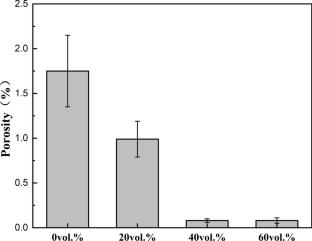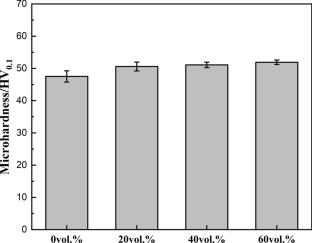Microstructure, Mechanical Properties, Corrosion, and Sealing Performances of Mg Alloys Deposited Using Low-cost Cold-Sprayed Al Coatings
Abstract
To study the feasibility of low-cost repair of the casting and service defects of magnesium alloys, Al coatings were deposited on ZM6 substrates using an in situ micro-forging cold spray (MF-CS) process. Large-size 410 stainless steel (410SS) MF particles are mixed into Al powder during spraying to promote the plastic deformation of Al layer and form dense coatings. The effects of cold spray process parameters on the quality of Al coatings were investigated, and the optimal process parameters are obtained. The experimental results show that the porosity of Al coatings decreases with the increase of MF particle content. When the MF ratio is greater than 40 vol.%, the microstructure of Al coatings is dense and the porosity is lower than 0.1%. As the content of MF particles further increases, the micro-hardness of the Al coatings slightly increases to 51.91 HV0.1, and the bonding strength increases to 126.3 MPa. The sealing performance test shows that the optimal spraying angle is 15°, where the coated specimen can withstand a maximum pressure of 1 MPa for over 10 minutes. The electrochemical measurements show that the Al coatings prepared with the MF content greater than 40 vol.% exhibit good corrosion resistance. The presence of small amount of MF particle remnants (< 2.8%) in the Al coatings does not present significant galvanic corrosion effect. The oxidation film on the surface of the coating and the tight bonding between particles hinder the corrosion of the corrosive medium on the inside of the Al coatings and improve the pitting behavior. This study verifies the feasibility of cold spray technology in the repair of magnesium alloy parts in the aerospace sector.



 求助内容:
求助内容: 应助结果提醒方式:
应助结果提醒方式:


